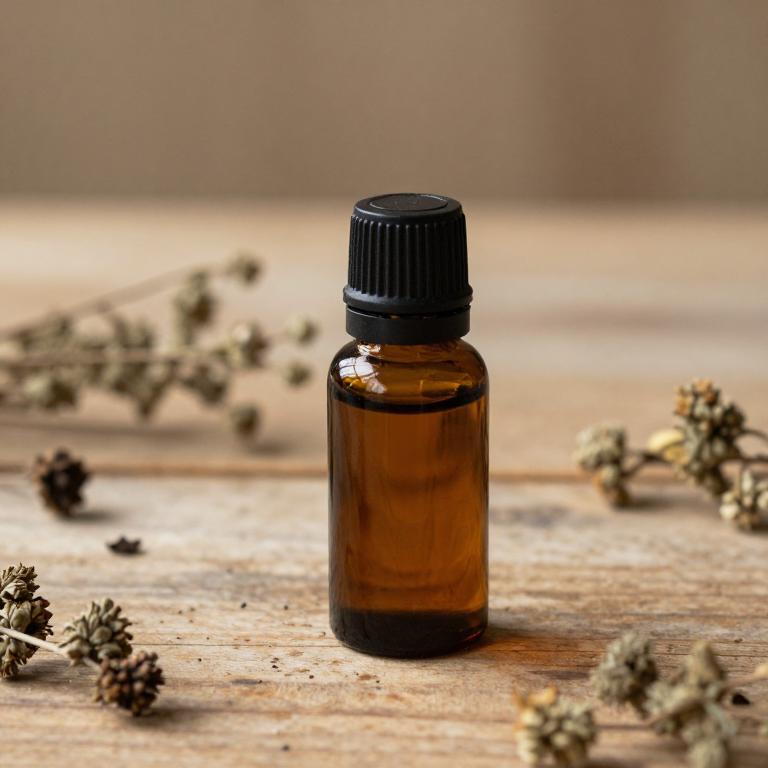10 Best Herbal Essential Oils For Allergies

Herbal essential oils, such as peppermint, eucalyptus, and lavender, are increasingly being used to alleviate allergy symptoms due to their natural antihistamine and anti-inflammatory properties.
These oils can help reduce nasal congestion, soothe respiratory discomfort, and ease skin irritation associated with allergic reactions. When diffused, applied topically, or used in steam inhalation, they may provide a safer alternative or complementary approach to conventional allergy treatments. However, it is important to dilute essential oils properly and consult with a healthcare professional before use, especially for those with sensitive skin or existing health conditions.
While they may offer relief, essential oils should not replace medical advice or prescribed treatments for severe allergies.
Table of Contents
- 1. English lavender (Lavandula angustifolia)
- 2. Rosemary (Rosmarinus officinalis)
- 3. Thyme (Thymus vulgaris)
- 4. Scots pine (Pinus sylvestris)
- 5. Eucalyptus (Eucalyptus globulus)
- 6. Citrus sinensis
- 7. Stinging nettle (Urtica dioica)
- 8. German chamomile (Chamomilla recutita)
- 9. Ceylon cinnamon (Cinnamomum zeylanicum)
- 10. Geranium (Pelargonium graveolens)
1. English lavender (Lavandula angustifolia)

Lavandula angustifolia, commonly known as English lavender, is a popular source of essential oils that are widely used for their calming and therapeutic properties.
The essential oil of lavender is known for its ability to reduce inflammation and support the immune system, making it a natural remedy for allergy symptoms. Its antihistamine properties may help alleviate nasal congestion and skin irritations associated with allergic reactions. When used in aromatherapy or diluted topical applications, lavender essential oil can provide relief from seasonal allergies and environmental allergens.
However, it is important to consult with a healthcare professional before using essential oils, especially for individuals with existing allergies or sensitivities.
2. Rosemary (Rosmarinus officinalis)

Rosmarinus officinalis, commonly known as rosemary, produces a distinctive essential oil that has been traditionally used for its aromatic and therapeutic properties.
This essential oil contains compounds like cineole and camphor, which are known for their anti-inflammatory and antimicrobial effects. It is often used in aromatherapy to help alleviate symptoms of allergies by supporting respiratory function and reducing nasal congestion. Some studies suggest that rosemary essential oil may help reduce histamine levels, potentially easing allergic reactions.
However, it should be used with caution and diluted properly, as it can be irritating to the skin and mucous membranes when applied undiluted.
3. Thyme (Thymus vulgaris)

Thymus vulgaris, commonly known as thyme, is a popular herb used in aromatherapy for its potent essential oils, which are often utilized to help alleviate symptoms of allergies.
The essential oil of thyme contains compounds such as thymol and carvacrol, which have strong antimicrobial and anti-inflammatory properties. These properties may help reduce nasal congestion and respiratory irritation associated with allergic reactions. When used in diffusers or applied topically (diluted), thyme essential oil can support immune function and potentially ease allergy symptoms.
However, it is important to consult with a healthcare professional before using thyme essential oil, especially for individuals with sensitive skin or existing health conditions.
4. Scots pine (Pinus sylvestris)

Pinus sylvestris, commonly known as Scots pine, produces an essential oil that has been traditionally used for its potential therapeutic properties, including its ability to support respiratory health.
The oil contains a variety of compounds such as alpha-pinene and beta-pinene, which are known for their anti-inflammatory and antiseptic qualities. When used in aromatherapy or topical applications, Pinus sylvestris essential oil may help alleviate symptoms associated with allergic reactions by reducing nasal congestion and supporting immune function. However, it is important to consult with a healthcare professional before using it, especially for individuals with existing allergies or sensitivities.
While some studies suggest its benefits, more research is needed to fully understand its efficacy and safety in treating allergies.
5. Eucalyptus (Eucalyptus globulus)

Eucalyptus globulus, commonly known as Australian eucalyptus, is a popular source of essential oil widely used for its aromatic and therapeutic properties.
This essential oil is known for its refreshing menthol-like scent and its ability to support respiratory health, making it a natural remedy for allergy-related congestion and inflammation. While it is not a cure for allergies, eucalyptus globulus oil may help alleviate symptoms by promoting clear breathing and reducing mucus production. It is often used in diffusers, inhalers, or topical applications, though it should always be diluted before use to avoid skin irritation.
As with any essential oil, it is advisable to consult a healthcare professional before incorporating it into an allergy management routine.
6. Citrus sinensis

Citrus sinensis, commonly known as sweet orange, produces a valuable essential oil that is often used in natural remedies for allergies due to its antihistaminic and anti-inflammatory properties.
The oil contains compounds like limonene and linalool, which have been shown to help reduce allergic reactions by inhibiting histamine release. When diffused or applied topically, citrus sinensis essential oil can help alleviate symptoms such as nasal congestion and skin irritation associated with allergies. It is also known for its ability to support respiratory health and ease breathing, making it a popular choice in aromatherapy for allergy relief.
However, it is important to use the oil properly and consult with a healthcare professional, especially for those with severe allergies or sensitivities.
7. Stinging nettle (Urtica dioica)

Urtica dioica, commonly known as stinging nettle, contains essential oils that have been explored for their potential benefits in managing allergies.
These oils, derived from the plant's leaves and stems, are rich in bioactive compounds such as flavonoids, terpenoids, and phenolic acids, which possess anti-inflammatory and antihistaminic properties. Some studies suggest that topical application of stinging nettle essential oils may help alleviate skin irritation and reduce allergic reactions. However, due to the plant's natural stinging hairs, proper extraction methods are necessary to ensure safety and efficacy.
While more research is needed, urtica dioica essential oils show promise as a complementary therapy for allergy management when used under professional guidance.
8. German chamomile (Chamomilla recutita)

Chamomilla recutita, commonly known as German chamomile, is a popular herb used in the production of essential oils due to its calming and anti-inflammatory properties.
The essential oil derived from this plant contains compounds like bisabolol and chamazulene, which are known for their ability to reduce skin irritation and allergic reactions. It is often used in aromatherapy and topical applications to alleviate symptoms associated with seasonal allergies, such as sneezing and itchy eyes. However, while some studies suggest its potential benefits, it is important to consult a healthcare professional before using chamomile essential oil, especially for individuals with known allergies or sensitivities.
Overall, chamomilla recutita essential oil may offer natural relief for allergy symptoms, but its efficacy and safety should be approached with caution.
9. Ceylon cinnamon (Cinnamomum zeylanicum)

Cinnamomum zeylanicum, commonly known as cinnamon, produces an essential oil that is widely used in aromatherapy for its warming and comforting properties.
This oil contains compounds like cinnamaldehyde, which may help in reducing inflammation and supporting respiratory health, making it potentially beneficial for individuals suffering from allergies. Some studies suggest that cinnamon essential oil may help alleviate allergy symptoms by acting as a natural antihistamine and decongestant. However, it is important to use this oil with caution, as it can be irritating to the skin and should be diluted before application.
While it shows promise as a complementary therapy, it should not replace conventional medical treatments for allergies.
10. Geranium (Pelargonium graveolens)

Pelargonium graveolens, commonly known as the geranium plant, is widely used in aromatherapy for its essential oils, which are derived from its leaves and flowers.
These essential oils contain compounds such as citronellol, geraniol, and linalool, which are known for their anti-inflammatory and antihistamine properties. Studies suggest that pelargonium graveolens essential oil may help alleviate allergy symptoms by reducing histamine release and soothing respiratory irritation. Due to its calming and decongestant effects, it is often used in diffusers or inhalation therapy to support allergy relief.
However, it is important to use this essential oil with caution, as some individuals may experience skin irritation or allergic reactions, and it should be diluted before topical application.